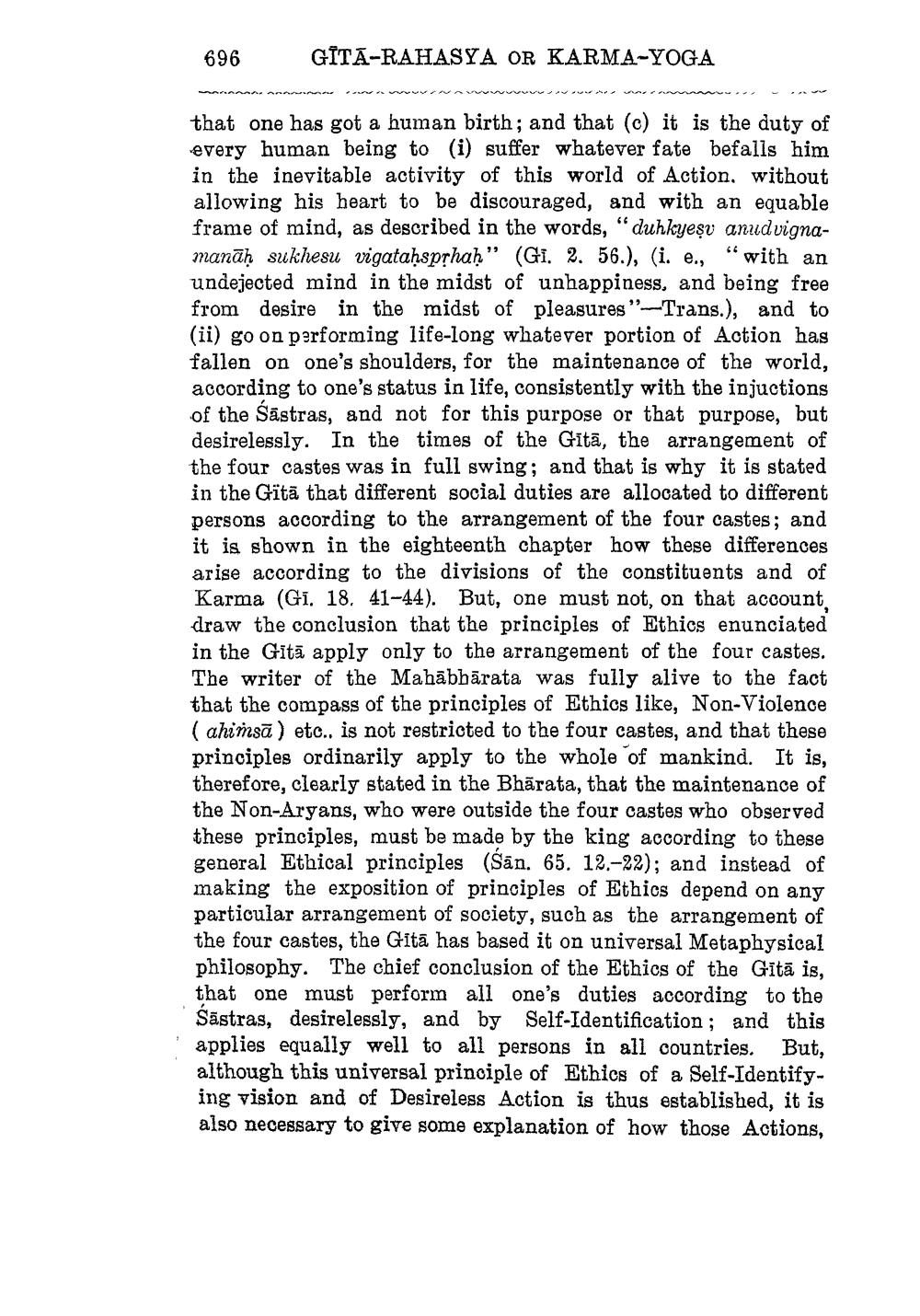________________
696
GITA-RAHASYA OR KARMA-YOGA
that one has got a human birth; and that (c) it is the duty of every human being to (i) suffer whatever fate befalls him in the inevitable activity of this world of Action, without allowing his heart to be discouraged, and with an equable frame of mind, as described in the words, duhkyeşv anudvignamanāh sukhesu vigatahsprhah” (Gi. 2. 56.), (i. e., “with an undejected mind in the midst of unhappiness, and being free from desire in the midst of pleasures"--Trans.), and to (ii) go on performing life-long whatever portion of Action has fallen on one's shoulders, for the maintenance of the world, according to one's status in life, consistently with the injuctions of the Šāstras, and not for this purpose or that purpose, but desirelessly. In the times of the Gitā, the arrangement of the four castes was in full swing; and that is why it is stated in the Gītā that different social duties are allocated to different persons according to the arrangement of the four castes; and it is shown in the eighteenth chapter how these differences arise according to the divisions of the constituents and of Karma (Gi. 18. 41-44). But, one must not, on that account draw the conclusion that the principles of Ethics enunciated in the Gitā apply only to the arrangement of the four castes. The writer of the Mahābhārata was fully alive to the fact that the compass of the principles of Ethics like, Non-Violence ( ahimsā ) etc., is not restricted to the four castes, and that these principles ordinarily apply to the whole of mankind. It is, therefore, clearly stated in the Bhārata, that the maintenance of the Non-Aryans, who were outside the four castes who observed these principles, must be made by the king according to these general Ethical principles (Sān. 65. 12.-22); and instead of making the exposition of principles of Ethics depend on any particular arrangement of society, such as the arrangement of the four castes, the Gita has based it on universal Metaphysical philosophy. The chief conclusion of the Ethics of the Gītā is, that one must perform all one's duties according to the Sāstras, desirelessly, and by Self-Identification; and this applies equally well to all persons in all countries. But, although this universal principle of Ethics of a Self-Identifying vision and of Desireless Action is thus established, it is also necessary to give some explanation of how those Actions,




